Matching the right financing instrument to the WEM
Offering finance facilitation support is another crucial step to ensure the adoption of the water solutions needed and identified. Investing in water efficiency and treatment measures beyond minimum requirements for production is not yet common among industries in Jordan.
Whether an industrial company can self-invest or is in need for external financing, it first requires clarity on the technical and financial feasibility of a specific water solution(s). Once the feasibility is proven for a specific solution, the financial assessment can help an industrial company decide if the capital expenditures (CAPEX) and operational expenditures (OPEX) of the solution can be covered by internal investment or not. In case the required capital exceeds the cash capacity of a company, external financing becomes relevant.
External financing can include a variety of instruments with loans, grants or equity representing the majority of these instruments. For the purpose of finance facilitation for industries, the focus lies on specific financing instruments that industries are not aware of such as those sector-focused instruments and/or those with subsidy or an incentive scheme such as cash back, grace periods, or government-backed. Generally speaking, most green financing instruments available for Jordanian industrial companies are rather focused on renewable energy and energy efficiency and not designed for water and waste solutions. Furthermore, instruments can be further categorized by size: grants are rather small and rarely go up to more than USD 300,000, loans can vary between USD 25,000 and USD 5mio. or more, equity investments are rather large scale, rarely below USD 5mio for industrial activities.
Facilitation support needs to capture and categorise the detailed modalities, requirements and eligibility criteria for all potentially relevant financial instruments. These instruments could be national, regional or global, as long as they are accessible to industrial companies in Jordan (or in the target country).
Why should you care
While the need for water-related investments is increasing, the number of impact-oriented financial instruments remains limited. Facilitating concrete investments between industries and financial institutions does not only foster implementation on a case-by-case basis, but also establishes important references for better access to water efficiency, or green finance in general.
Key lessons learned with recommendations
Comprehensively map and assess available financing opportunities
Since we started assessing financing opportunities in Jordan late, we did not have any information during the first company assessments. This put us in a situation where we were unable to provide sound information on financing opportunities during the first engagements with the companies. It is therefore strongly recommended to have a clear picture of existing and future external financing opportunities before you engage with companies to have the applicable list of finance options ready when needed. It is equally important to have a clear understanding of the modalities of such instruments and how they differ from commercial financing opportunities. Such information can be requested by the companies at an early stage (even before the investment case has been developed yet), and is key to your credibility when engaging in discussions around the business cases.
Discuss financing practically with the company
Once a company has decided on a particular water solution and needs external financing, a shortlist of relevant financing instruments can be presented and jointly discussed. The shortlist can be based on the funding size, timing, eligibility, etc. using existing data of the company and feasibility reports. In the subsequent discussions with the company, further criteria need to be considered, e.g. the company’s willingness to take loans or equity, the financial health of the company, ability to inject capital into the investment, etc.
As a next step, the applicability of a concrete instrument or combination of instruments will be analysed thoroughly, which could include payback options, cash flow projections, how to initiate the application process, etc. The final proposition of a target instrument is then agreed upon with the industrial company and further support is provided to the company to complete the application process.
Launching new financing instruments takes time
Specialised green financing instruments are emerging in the Middle East and North Africa (MENA) region, but often these instruments do not specifically recognise water-related business cases, simply due to the lack of capacity and understanding of water efficiency and its feasibility. Lobbying for new investment instruments and their promotion is a lengthy process and therefore, expect long timelines before the launch of new financing instruments. If speedy implementation of water efficiency measures is needed (for compliance or accreditation purposes), it is better to focus on available and applicable financial instruments rather than wait for new programmes to emerge.
Understand the limitations of the company with relation to financing
Some industrial companies refuse loan instruments, either for religious reasons or because the prefer to operate without any financial liability . This limits the options for financing and often delays the timeline for implementation until a company has sufficient capacities to self-invest. Therefore, feasibility assessments should tackle only those finance options that are appealing to the target company. While self-investment is not always a considered option by companies due to issues with cash flow, one needs to consider other non-loan financial options such as grants, technology supplier-financed solutions, or any other relevant instruments.
Grant instruments can accelerate adopting water efficiency solutions, but can also work the other way around
The availability and prospect of grants is always good to further incentivise companies to invest in water efficiency as they cover part of the investment. However, the availability of grant schemes can sometimes discourage companies from committing to their own investment or putting water efficiency projects on hold until grants become available. It is critical to note that relying on grant schemes that take time to develop can delay the roll-out of the water efficiency solution (and thus the returns). Ensure that the amount and cycle of grants are appropriate so that the investment remains profitable for the company.
Understand that not all green finance instruments are water-oriented
Very few financial instruments, be they loans, grants or equity, are tailored to the water efficiency of industrial enterprises. Therefore, you need to engage with the representatives of these instruments to increase their knowledge of the feasibility of water efficiency and the different technologies. Assume that those providing funding have limited understanding of technologies, the market, service providers, etc., and present case studies to create a strong sentiment for the topic.
CEWAS AND CENTRE FOR SUSTAINABLE FINANCE AND PRIVATE WEALTH (CSP)
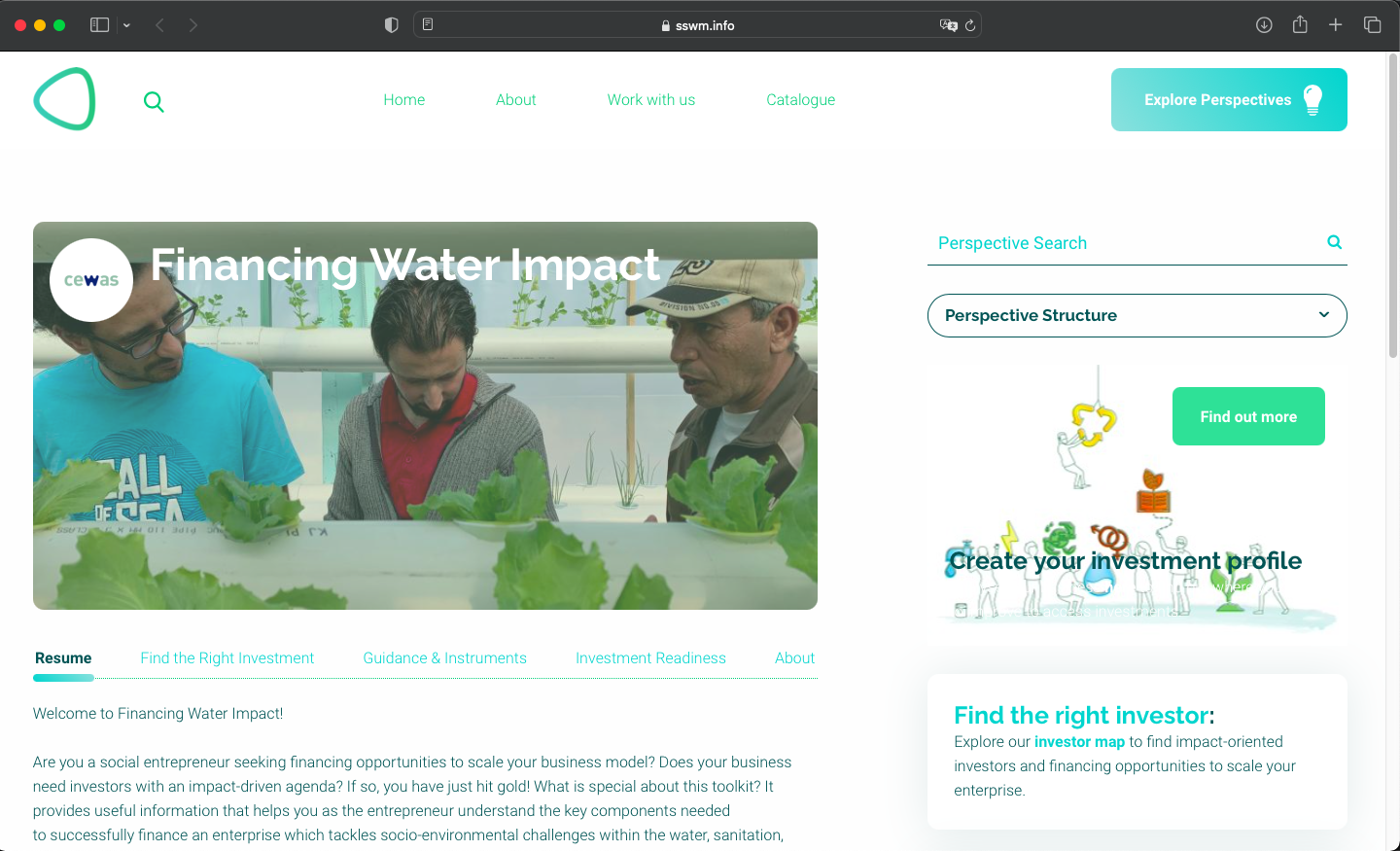
The Financing Water Impact toolkit provides useful information that help entrepreneurs understand the key components needed to successfully finance an enterprise which tackles socio-environmental challenges within the water, sanitation, waste and sustainable agriculture sectors.
DEUTSCHE GESELLSCHAFT FÜR INTERNATIONALE ZUSAMMENARBEIT (GIZ) GMBH
This study aims to develop an understanding of the potential and current barriers to increasing supply and demand of green finance and its improved access to by the industrial sector in Jordan.
GREEN ECONOMY FINANCING FACILITIES (GEEF)
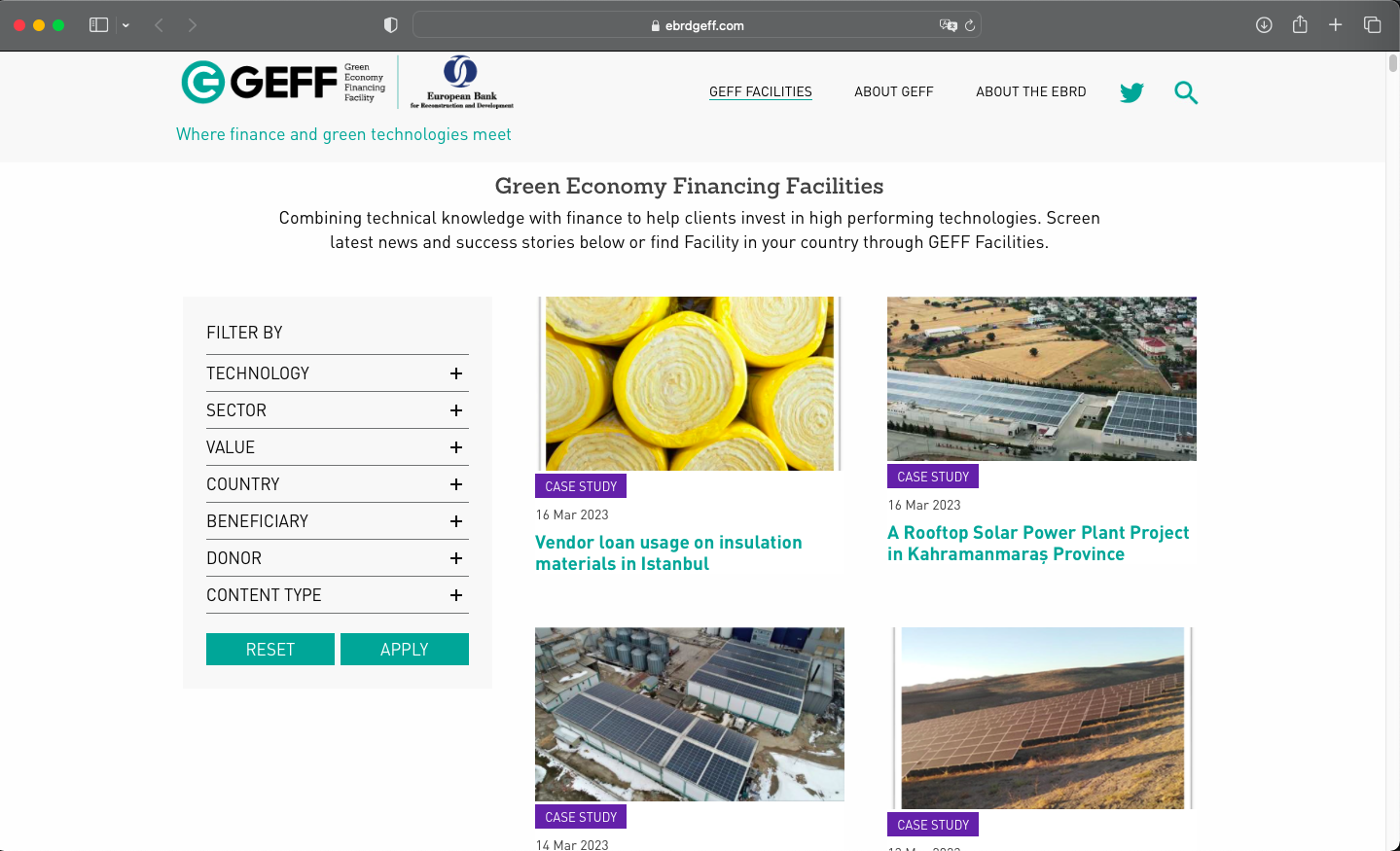
On the website of the Green Economy Finance Facility, you will find a list and description of many case studies from different sectors.
GREEN FOR GROWTH FUND (GGF)
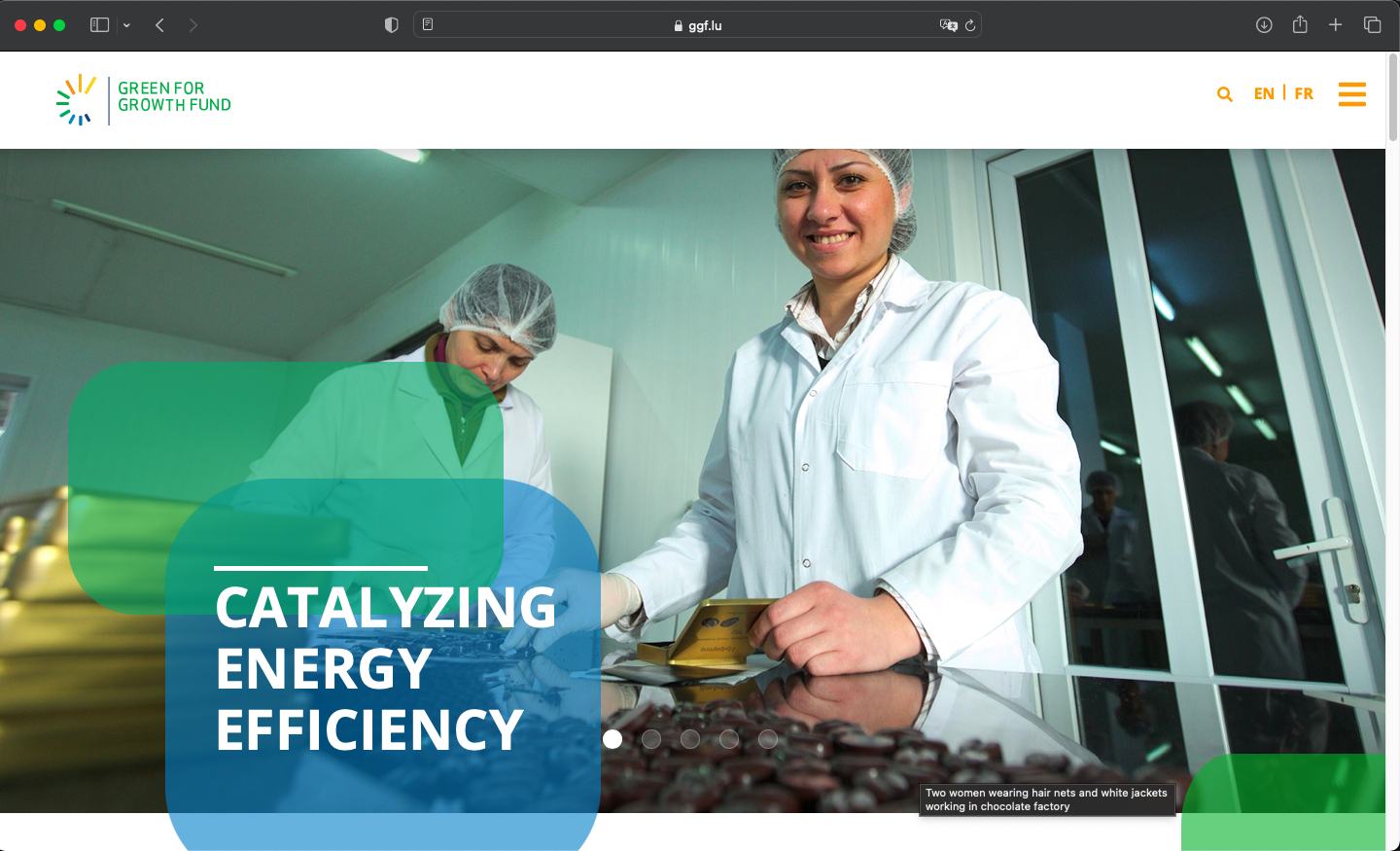
The Green for Growth Fund’s webpage provides information on how the fund mitigates climate change and promotes sustainable economic growth by investing in measures that reduce energy consumption, resource use and carbon dioxide emissions.
ORGANISATION FOR ECONOMIC CO-COPERATION AND DEVELOPMENT (OECD)
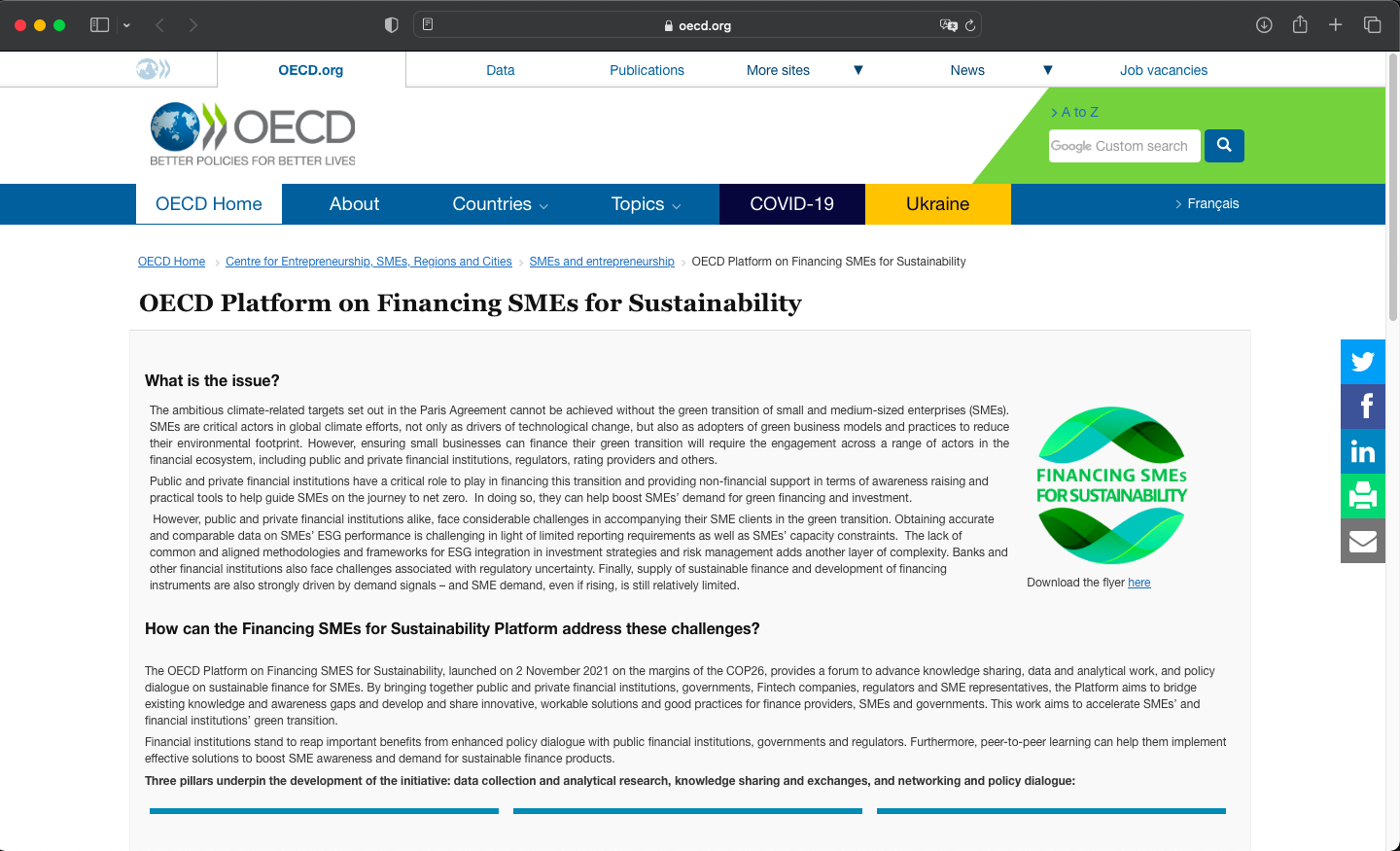
The OECD Platform on Financing SMEs for Sustainability provides a forum to advance knowledge sharing, data and analytical work, and policy dialogue on sustainable finance for SMEs.
WATER AND ENERGY FOR FOOD (WE4F)
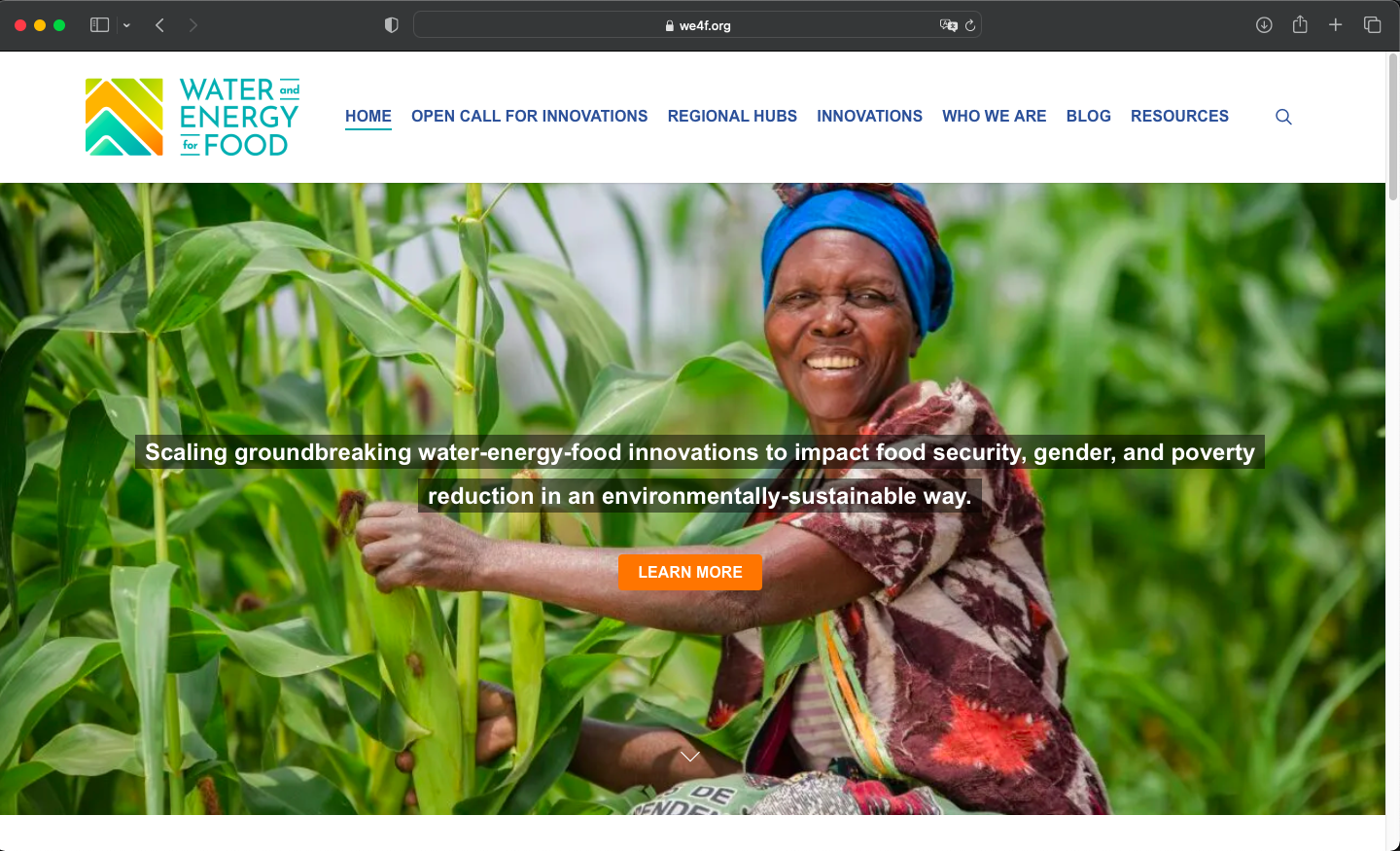
The Water and Energy for Food (WE4F) program, through its Regional Innovation Hubs, provides financial support, technical assistance, and investment facilitation to water-food, energy-food, and water-energy-food innovations to impact food security, gender, and poverty reduction in an environmentally-sustainable way.
